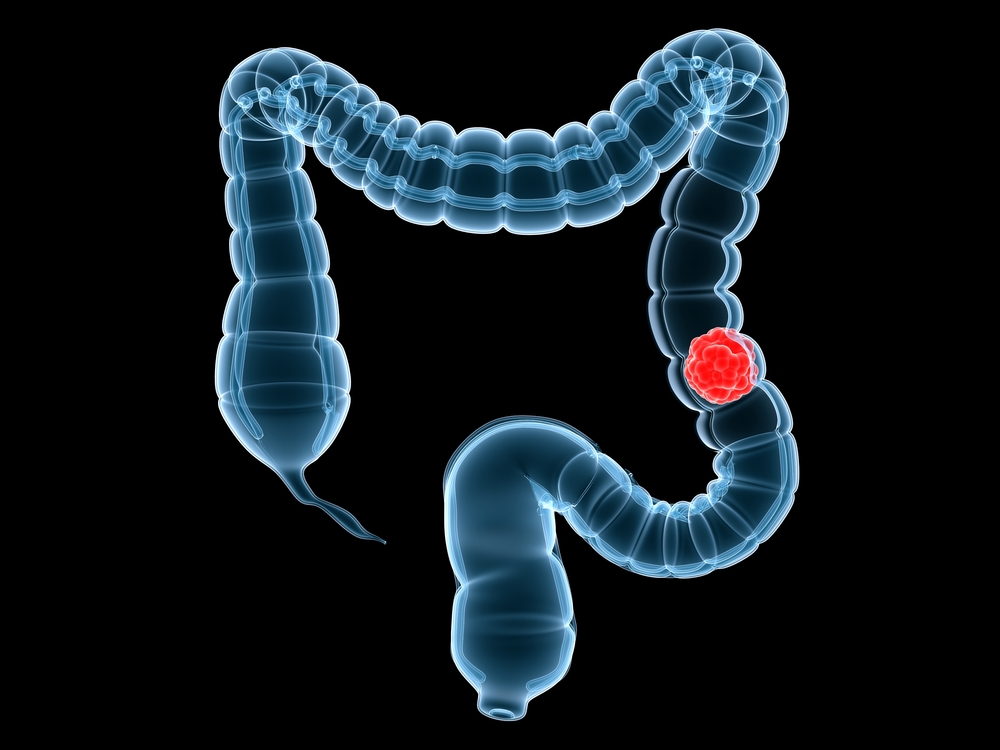A recent study entitled “Safety and Activity of the First-in-Class Sym004 Anti-EGFR Antibody Mixture in Patients with Refractory Colorectal Cancer” showed that a specific therapy based on Sym004 antibody mixture yielded promising results against refractory colorectal cancer. The study was performed by an international team of researchers and published in the journal Cancer Discovery.
EGFR (epidermal growth factor receptor) is an oncogene that, once activated, sends signals to induce cell division and proliferation. Several trials have shown that anti-EGFR therapy is beneficial for metastatic colon cancer patients without mutations in the RAS genes (genes often mutated in colorectal cancer). However, resistance to anti-EGFR therapy has been observed; in these cases, the disease eventually progresses and the patients are left with few therapeutic options.
One anti-EGFR therapy is Sym004, a 1:1 mixture of two recombinant antibodies against two different EGFR epitopes. Studies have shown that Sym004 is able to block EGFR and induce tumor regression.
In this study, the research team conducted the first-in-human Phase I trial with 62 patients. Of these patients, 20 had advanced solid epithelial tumors and participated in a dose-escalation phase of the study, administered weekly with Sym004 at different doses (varying from 0.4 mg/kg to 12 mg/kg). The remaining 42 patients, who had metastatic colorectal cancer and had acquired EGFR inhibitor resistance (namely against the inhibitors cetuximab and panitumumab), were enrolled in the dose-expansion phase of the trial receiving weekly doses of 9 or 12 mg/kg of Sym004.
Researchers found that in the dose-expansion cohort, 44% of patients exhibited tumor regression, with 13% having a partial response to Sym004 treatment. The results also showed a 67% overall disease-control rate, including stable disease and partial responses, upon Sym004 treatment. Sym004 toxicity profile was found to be similar to other anti-EGFR antibodies approved by the U.S. Food and Drug Administration (FDA), namely low magnesium levels and grade 3 skin toxicity that could be controlled with dose reductions and supportive care, such as antibiotics and steroids.
The research team concluded that Sym004 represents a potential effective therapy for patients with advanced colorectal cancer, who have become resistant to approved anti-EGFR therapies.
“This study represents one of the first examples of promising translation from preclinical findings to drug development and clinical activity against anti-EGFR antibody-resistant colorectal cancer. The significant anti tumor activity of Sym004 in patients whose tumors have become resistant to anti-EGFR therapies suggests that some colorectal cancers that progress after treatment with cetuximab or panitumumab [anti-EGFR therapies] remain dependent on EGFR signaling,” concluded the study’s senior author and director of the Vall d’Hebron Institute of Oncology in Barcelona, Spain, Dr. Josep Tabernero in a news release.


